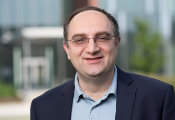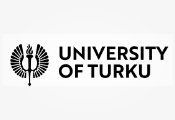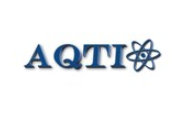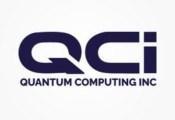OQD Signs Four Quantum Heavy Hitters As Founding Partners
Waterloo, Ontario, January 16, 2025 -- Amidst the global race to establish and deploy useful and powerful quantum computers, researchers at a newly incorporated, Waterloo-based non-profit are taking a different approach. The team at Open Quantum Design (OQD) believes the key to accelerating advancements in quantum computing - including developing top talent - is to democratize access and open up its intellectual property for anyone willing to collaborate; and its four partners agree. Quantum heavy-hitters Xanadu, the University of Waterloo, the Unitary Foundation, and Haiqu are the first to join OQD’s innovative platform to spearhead a new, unprecedented degree of open access to full-stack quantum computing technology.
Founded by world-renowned researchers out of the University of Waterloo, Roger Melko, Crystal Senko, and Rajibul Islam, alongside entrepreneur Greg Dick, Open Quantum Design, is working to accelerate quantum research by democratizing quantum computing - breaking down the traditional barriers between academia and industry. Their team is working to accomplish this by opening up both the hardware and software intellectual property for its trapped-ion quantum computer—the first of its kind—to collaborators looking to participate in a global quantum sandbox.
In an early testament to their work, Xanadu, the University of Waterloo, Unitary Foundation, and Haiqu have all formally signed on to participate in OQD’s open-source platform, enabling unfettered access to quality quantum computing hardware, software, and up-to-date training opportunities that will accelerate innovation and serve to develop the quantum workforce of the future.
By opting into OQD’s value proposition and open-source community, these organizations gain access to the trapped-ion quantum computer repositories, including hardware specifications and fabrication standards, as well as design forums for quantum research and development. By removing traditional barriers and focusing on solutions to hard problems, OQD’s highly collaborative approach is well-positioned to speed-up innovation by pooling global quantum expertise.
“Our open-source approach means that everything in the quantum computer will be accessible to the user, from the bare metal technical design to application programming interfaces,” says Roger Melko, faculty member at the University of Waterloo, the Perimeter Institute for Theoretical Physics, and Co-founder of OQD.
“We have found a way to leverage the collective global quantum workforce to scale quantum computing,” explains Greg Dick, OQD’s CEO. “By sharing resources, knowledge, and designs as a global community, we will accelerate the development of quantum technologies. There are researchers and companies all over the world racing towards the realization of a working quantum computer, and what we are providing is an open platform to scale progress rapidly where people work, build, and innovate together.”
Open Quantum Design is grateful for the near-decade of investment into the foundational research to build the basis of their computer by the Institute for Quantum Computing, and the operational support Perimeter Institute has provided through its Quantum Intelligence Lab (PIQuIL).




































